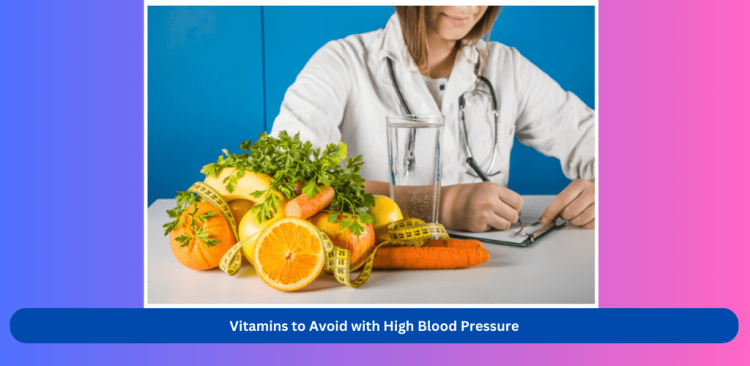Managing high blood pressure, also known as hypertension, requires careful attention to diet, lifestyle, and sometimes medication. One aspect that often gets overlooked is the impact of vitamins and supplements. While vitamins are generally considered beneficial, certain ones can adversely affect blood pressure levels. In this article, we will explore the relationship between vitamins to avoid with high blood pressure, identify which vitamins to avoid, and provide tips for maintaining a balanced intake.
Understanding High Blood Pressure
High blood pressure occurs when the force of blood against the artery walls is consistently too high. This condition can lead to serious health issues such as heart disease, stroke, and kidney failure. It’s essential to manage blood pressure effectively to reduce these risks.
The Role of Vitamins in Health
Vitamins are organic compounds that our bodies need to function correctly. They play crucial roles in processes such as metabolism, immunity, and cell growth. While vitamins are vital for overall health, not all vitamins are suitable for everyone, especially those with specific health conditions like hypertension.
Vitamins to Be Cautious Of with High Blood Pressure
Vitamin E
Vitamin E is an antioxidant that helps protect cells from damage. However, in high doses, it can interfere with blood coagulation and lead to increased bleeding risk. For individuals with high blood pressure, this can be particularly concerning as it may exacerbate existing conditions or interact with blood pressure medications.
Vitamin D
Vitamin D is essential for bone health and immune function. However, excessive intake of vitamin D can cause an increase in calcium levels in the blood, which may contribute to hypertension. It’s crucial to monitor vitamin D levels and consult with a healthcare provider before taking high-dose supplements.
Licorice Root (Glycyrrhizin)
Although not a vitamin, licorice root is often included in supplements for its various health benefits. However, glycyrrhizin, a compound found in licorice root, can cause significant increases in blood pressure by causing sodium retention and potassium loss.
Safe Vitamin Practices for Individuals with High Blood Pressure
Consulting with Healthcare Providers
Before starting any new vitamin or supplement, it’s essential to discuss it with a healthcare provider. They can provide guidance based on your specific health needs and current medications.
Monitoring Dosage
Even beneficial vitamins can be harmful in excessive amounts. Follow recommended daily allowances and avoid megadoses unless specifically prescribed by a healthcare professional.
Opting for a Balanced Diet
A well-rounded diet rich in fruits, vegetables, lean proteins, anxiety and high blood pressure, and whole grains can often provide all the necessary vitamins without the need for supplements. Foods such as leafy greens, berries, nuts, and seeds are excellent sources of essential vitamins and minerals.
Conclusion
Understanding the relationship between vitamins and high blood pressure is crucial for effective hypertension management. While vitamins are essential for health, some can have adverse effects on blood pressure levels. By consulting with healthcare providers, monitoring dosages, and maintaining a balanced diet, individuals with high blood pressure can manage their condition more effectively.


